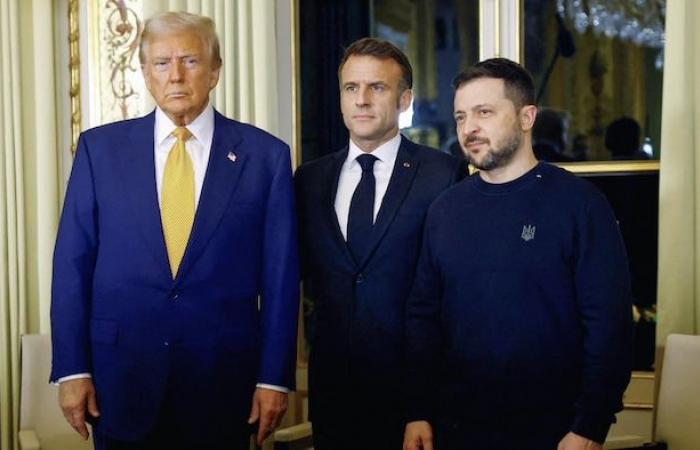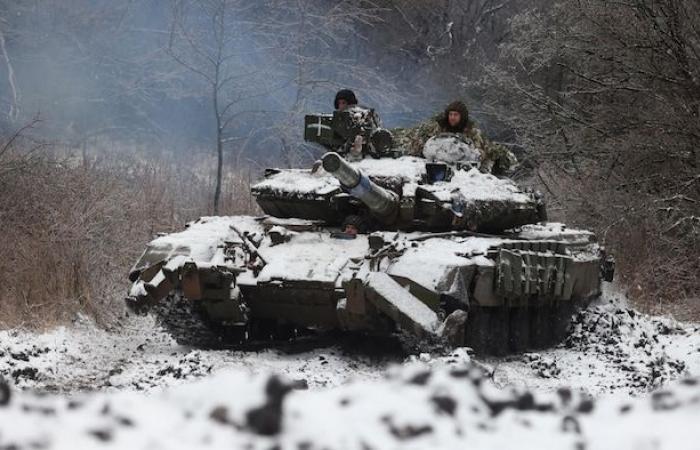European countries have begun discussing deploying troops to Ukraine if the war were to end, as US President-designate Donald Trump made clear he would not send US troops to ensure kyiv’s security, reports said. European officials and diplomats told Reuters.
Under the leadership of French President Emmanuel Macron, discussions at European level are only just beginning. But they have already highlighted the major challenges presented by such a risky mission, as well as differences over its objectives and mandate, and even over whether the issue should be addressed now.
European leaders do not want to give Russian President Vladimir Putin the impression that they believe the time for negotiations has come and that Russia will be able to maintain the territorial gains it has made on the battlefield.
While Ukraine is on the defensive in the face of repeated assaults by the Russian army, these leaders publicly say they are focused on increasing military and economic aid to kyiv and see no sign that Vladimir Putin is ready to begin peace negotiations.
What about security guarantees?
Yet behind the scenes, some officials are considering how European countries could provide security guarantees to Ukraine in the event of a ceasefire or peace deal, including through the deployment of a force. tens of thousands of soldiers on Ukrainian soil.
Such a move would increase the risk of direct confrontation with Russia and would put a strain on European armies, whose arms stocks have been seriously depleted by support for Ukraine and which have become accustomed to relying on military power. of the United States for large-scale missions.
They will not be able to do it this time, Donald Trump having clearly excluded the American army from playing a role in supervising the application of a ceasefire, and returning this responsibility to the Europeans during discussions with Emmanuel Macron and Ukrainian President Volodimir Zelensky in Paris on December 7, according to two sources.
This could force the Europeans to send a significant number of soldiers on the ground, so that Ukraine obtains a guarantee of security by joining theI’LL TAKE – as it hopes to do – or within the framework of bilateral security agreements.
Even if NATO provided a security guarantee, where would the impetus on the ground come from? It would be European, so our chiefs of staff are already preparing plans that European leaders could consider in the future.
Major European nations such as France, Germany, Italy, Poland and Britain could make up the bulk of the force, officials say.
Macron criticized
Emmanuel Macron came under fire for publicly raising the issue, given the political sensitivity of sending troops for such a mission.
Open in full screen mode
French Presidents Emmanuel Macron, American Donald Trump and Ukrainian President Volodymyr Zelensky at the Élysée. (Archive photo)
Photo : Getty Images / SARAH MEYSSONNIER
After speaking with the French president last week, Polish Prime Minister Donald Tusk said Warsaw had no plans to participate in such a force.
German Defense Minister Boris Pistorius said Monday that Berlin would likely play a role in overseeing a ceasefire, but that it was far too early to say what kind of force would be needed.
Volodymir Zelensky estimated that the issue could be addressed during the discussions he will have with the Secretary General of theI’LL TAKEMark Rutte, and other European leaders Wednesday evening in Brussels.
But Mark Rutte himself called officials last weekI’LL TAKE and Ukraine to show itself a little more discreet
when they discuss possible scenarios for the future of the conflict in Ukraine.
If you discuss all this openly now, why would Putin come to the negotiating table when he feels he is getting what he wants.
Experts say the debate so far has revealed some confusion over whether a future European mission would take on a traditional peacekeeping role, such as monitoring a ceasefire line, or whether it would provide a strong deterrent against any further attacks from Russia.
Italian officials talked about peacekeeping, while French and Ukrainian officials emphasized deterrence.
How many soldiers?
A deterrent force could be formed by a coalition of five to eight countries, a Ukrainian official familiar with some of the discussions said.
Experts are careful not to comment too precisely on the number of soldiers needed to constitute such a force, stressing that this would largely depend on the mission assigned to the latter. Some experts have suggested that a force of around 40,000 would be feasible.
Open in full screen mode
Ukrainian forces are entering their third winter on the eastern front since the Russian invasion, launched in February 2022.
Photo : afp via getty images / ANATOLII STEPANOV
According to Franz-Stefan Gady, a former Austrian soldier who currently works at the International Institute for Strategic Studies, the total number of soldiers affected could rise to 100,000 if unit rotations are taken into account.
It is certain that European land armies would be put to the test
he emphasizes.
A European security official, speaking on condition of anonymity, also estimated that the mobilization of 100,000 troops could be necessary.
According to Franz-Stefan Gady, the Europeans could manage to constitute such a force on condition of reducing their participation in other peacekeeping missions, for example in the Balkans.
Europe, the United States and other countries deployed some 60,000 troops to Bosnia and 50,000 to Kosovo in the 1990s, but those missions are much smaller today.
Under the auspices of the UN?
The composition of an international force in Ukraine, which should be acceptable to both parties in the conflict, as well as its precise mandate, are also the subject of debate.
Italian Defense Minister Guido Crosetto said it should be placed under the auspices of the United Nations. But other officials believe that this would give too much power of influence to Russia, a permanent member of the Security Council of theHIM and as such endowed with a right of veto.
The Europeans should also persuade the United States to get involved in some way, at least by providing intelligence and other forms of operational assistance, experts say.
Among the most critical questions still unanswered are potential rules of engagement. In short, what would happen if a European soldier was shot?
asks a French military official.







